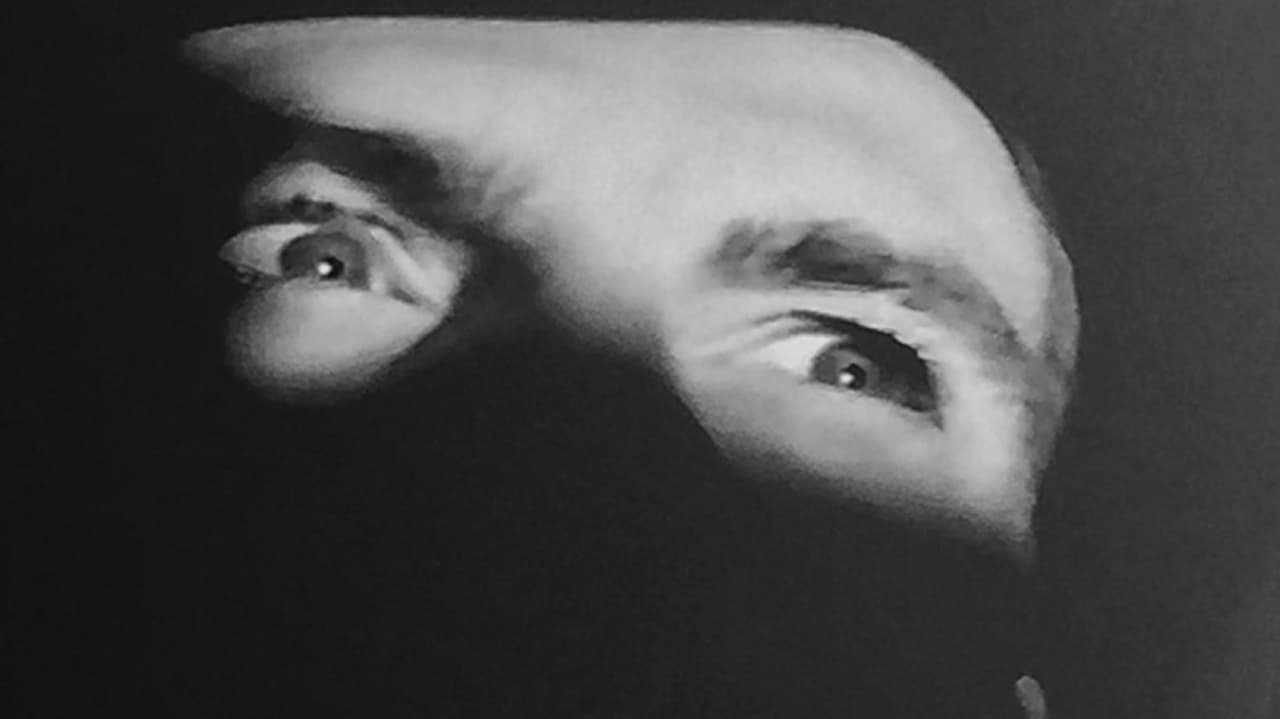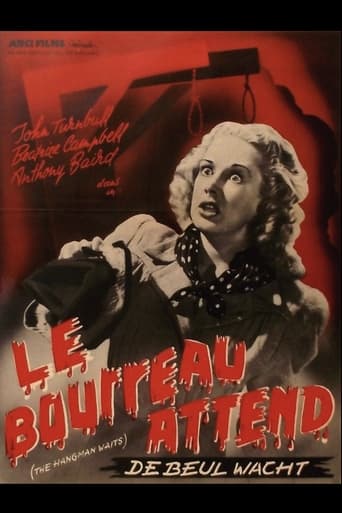

Beautiful, moving film.
... View MoreIt's a mild crowd pleaser for people who are exhausted by blockbusters.
... View MoreThe joyful confection is coated in a sparkly gloss, bright enough to gleam from the darkest, most cynical corners.
... View MoreThere are moments that feel comical, some horrific, and some downright inspiring but the tonal shifts hardly matter as the end results come to a film that's perfect for this time.
... View MoreTHE HANGMAN WAITS is a very odd and obscure little British crime film that feels pretty rough around the edges. It's an occasional patience-tester despite the short running time, beginning with an arresting murder scene that smacks of sensationalism, but it soon descends into tedium and occasional farce in the tale of inept detectives attempting to get to grips with the murderer. The film does have some artistic pretensions but the acting is quite wooden and the atmosphere is all over the place, shocking at times and comedic at others. None of it really gels all that well.
... View MoreThis a rather strange film.At times it seems inept and amateurish and at others unintentionally funny,but it is not without interest.the plot is fairly straightforward without explaining what turned the cinema organist into a murderer.For some reason we don't see his face till well after half the film has elapsed.The most interesting part comes when he is running from the police near St Pauls.It gives you an idea of just how much devastation there was in the area surrounding St Pauls.The climax is in the newspaper building and it is here we see the Keystone cops.5 policeman are shown hanging on to the outside of a police car.When it stops they run into the newspaper building but fail to catch up with the murderer.It is reminiscent of a Buster Keaton silent film.The ending is a bit of a surprise.However the general feeling throughout is of a poverty row production.
... View MoreThe Hangman Waits is an extraordinary little-known crime docudrama made in co operation with the News of the World, appearing on DVD for the first time. It comes accompanied with an apology for the less than perfect quality of the source print for which due attention should be drawn. (The accompanying film is much better served).The Hangman Waits is an account of a manhunt, but told in very striking fashion. It is, I'd suggest - and one hesitates to use the term so readily in such an obscure context - the work of a poverty row auteur: the director, producer and writer being the same person, one A Bar-Smith, apparently his only full length directing job. A lonely review on IMDb points out that this film "looks and feels as though it was made at the dawn of talking pictures with some stilted performances, erratic editing and simplistic storyline...". That's one view.It certainly seems a throwback to earlier times with dialogue playing a constant second to visuals and sound - and in fact it is 6 minutes in before any dialogue is spoken. Even the police are presented at one point Keystone-cops style, manning the running boards of cars to the final showdown, in a couple of remarkable 'frozen' shots, the careful framing of which, I'd suggest, indicates surely a deliberate stylistic strategy on the part of the director rather than clumsiness. I'd argue that like another favourite of mine, White Zombie, the anachronistic styling gives the film a unique feel, and by using a distinctive mode of storytelling, it turns its austere production values to advantage. The editing is not erratic either: in fact it is at some points quite deliberately structured, such as during the suspenseful, Hitchcockian opening scenes. In fact, dialogue issues apart, The Hangman Waits is striking on several counts throughout, including no less than 3 montage sequences, and a unique score featuring piano and organ instrumentation (at times reminding me of that for Peeping Tom). The killer's face is not revealed until the last few sequences; instead the film contains several interesting minor characters and incidents, which go by way of compensating for the enigmatic man on the run at the centre of the plot. The involvement of the News of the World is obvious with some effective location shooting in Fleet Street, but the view of journalists and reporters is not rose-tinted. The final montage sequence is the most interesting, creating an almost stream-of-consciousness effect as the killer recalls moments of his romantic past as the organ plays a canzona.Some will find little in the film; others I hope will pause and discover it's avant-garde qualities, seen for the first time in a generation or so, in this release with all of the surprise and delight I did. I certainly watched Bar-Smith's work open mouthed.It has just appeared for the first time on a double feature UK DVD, albeit in a less than perfect transfer.
... View MoreThe plot in this curiosity is simple enough. A cinema usherette is murdered immediately following a dalliance with the cinema manager and with the killer on the loose, we follow the police attempts to catch the person responsible and a newspaper's (ironically The News of the World) efforts to get the story. Some attempt was made to make a kind of semi-documentary out it (rolling printing presses etc) but I suspect it was hoped to deflect from the plot's deficiencies.I'm really not sure why this film was ever made. It was released in 1947 when British Cinema was perfectly capable of making professional and entertaining films but this film is neither of those things. It looks and feels as though it was made at the dawn of talking pictures with some stilted performances, erratic editing and simplistic storyline.There are some faults in the actual physical quality of the film but I'm not criticising those because this is obviously a rarity that must have been rescued from the darkest corners of Renown's vaults and if you are like me, curiosity means you must watch it for your own satisfaction.So – accept this film purely as a rare curiosity and nothing more. However it is notable for one thing. The sharp-eyed viewer will see the very first screen appearance of the great British character actor John Le Mesurier. His first film is often quoted as being DEATH IN THE HAND from 1948 but he appears here as a newspaper employee called into his editor's office and has one line to speak.
... View More